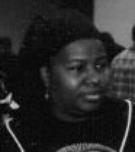Linked with Baitul Salaam Network.
She is one of the 1000 women proposed for the Nobel Peace Price 2005.
Hadayai Majeed’s vision is both simple and huge: Give Muslim women the tools to change their climate by changing themselves. A member of a religion that is focused on service, Hadayai was called to reach out to her sisters in 1997, when she founded Baitul Salaam Network, Inc. to help victims of domestic abuse. The goal of the network, headquartered in Georgia, U.S., is to end silence about domestic violence and to help abused Muslim women and children with shelter, food, and clothing. They are taught strategies for self-sufficiency – how to be confident in speech, mannerisms, and body language … (1000peacewomen 1/2).
She says: « Just after we opened, a child of one of our residents danced in the middle of the floor, dived head-first into the toy box and squealed with joy. I knew then we were doing the right thing ».
Her public profile on plaxo.com.
Barack Obama: Hadayai Majeed’s Blog.
. .
.
Hadayai Majeed – USA
She works for the Baitul Salaam Network, Inc.
Find her and her publications on BookFinder.com; on Google Group-search; on Google Book-search; on Google Blog-search.
(1000peacewomen 2/2): … Hadayai’s marriage was one of neglect and denigration. But when she sought intervention, counsel, encouragement and financial assistance from Muslim family and friends, she was told she was at fault. The policy of the community’s one shelter was to tell abused women to be quiet and to « move on. » Instead, Hadayai saw a need and she moved to fill it.
Although her mother was a social worker, Hadayai had avoided following in her footsteps, observing its personal demands. But in 1997, she responded to the call of her faith and founded Baitul Salaam Network. The vision of the network is to provide a community in which women are self-empowered through their spiritual beliefs and in which community the liberties and rights of every person are respected.
Hadayai remembers when she first knew she had done the right thing in creating Baitul Salaam: « Just after we opened the shelter in 1999, a child of one of our first residents danced in the middle of the floor, dived head first into the toy box, and squealed with joy. »
Baitul Salaam Network operates at local, state, and national levels; requests for help are frequent. Locally, the network focuses on shelter, prevention, and intervention trainings. Information about the program is widely disseminated on bulletin boards in masjids (mosques), Islamic centers, and on the Internet. Hadayai is a frequent presenter at her masjid in Atlanta, and at national conferences and women’s gatherings. She is a recognized resource concerning abused and neglected Muslim women and children for social workers, mental health professionals, and abuse victims’ advocates throughout the state of Georgia.
Hadayai has been challenged by lack of cooperation from some Muslim leaders, who interpret her work as « rebellious. » Nevertheless, the group has succeeded in making domestic violence awareness a focus of national conferences, and some local leaders now give khutbahs (Friday prayer lectures) to raise awareness about the issue. The organization and its leaders have received formal recognitions from several Muslim organizations and from the state of Georgia.
Perceived as troublemakers, Hadayai’s group has had difficulty communicating their mission. Sisters who feared loss of favored status among men would not embrace the cause and in some cases were used as pawns to fight against the effort. Any association with feminism is alienating in the Muslim culture, and the group lost funding and co-founders because of a perceived affiliation. Confidence from women has been slow in coming.
« Our plan is to build a viable organization that will be here when we are long gone from this earth, » says Hadayai. « We want the issue not to be hidden and for people to be able to report in safety and begin to rebuild their lives in dignity without fear of any form of reprisal. We see this as being accomplished through constant reminders, examples of victims living free and productive lives. We plan to change the climate by changing ourselves. As a survivor, the best thing I can do for victims and other survivors is to be successful, happy and stay free of abuse.
« We need more moral support, » said Hadayai. « We need victims to not be afraid after they are safe to come back and help. We need all victims (male and female) not to be ashamed of having been a victim. No more guilt from this issue. When more survivors stop hiding from their past (the ones who can do so without fear of harm) and speak out and up you will see a change in our society. » (1000peacewomen 2/2).
links:
The book:Muslim Networks: from medieval scholars to modern feminists, 2005;
Poetry and Art by Muslim Women and Children, Aug. 2004;
